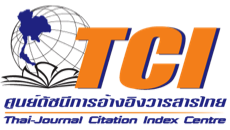About the Journal
Journal Description
Asian Political Science Review (APSR) is an open-access, peer-reviewed electronic journal published bi-annually in English. APSR is a collaborative effort between the Association of Legal & Political Studies (Thailand), White Tiger Legal, Business and Research Consultants Co., Ltd. (Thailand), the Faculty of Social and Political Sciences, Muhammadiyah University of Makassar (Indonesia), and the Publication Research Institute and Community Service, Universitas Muhammadiyah Sidenreng Rappang (Indonesia). APSR provides a high-impact platform for disseminating rigorous, cutting-edge, and interdisciplinary scholarship focusing on the broad dynamics of politics – encompassing power relations, decision-making processes, and contestations over resources and values – particularly within the Asian context. The journal welcomes original research articles and comprehensive review articles, employing a transparent open review process involving at least two expert reviewers prior to publication, ensuring the highest standards of academic quality. APSR is committed to fostering critical dialogue and advancing knowledge that contributes to a deeper understanding of political dynamics and governance challenges in Asia and globally, recognizing that politics shapes all aspects of human life.
Scopes
Asian Political Science Review is a journal dedicated to publishing impactful research and reviews across the breadth of political science and related interdisciplinary fields, adopting a comprehensive view of "politics" that extends beyond formal institutions to encompass power dynamics in everyday life, organizations, and social movements. We welcome submissions that analyze political phenomena in Asia, including comparative studies within the region and between Asia and other global contexts. We encourage contributions that employ diverse theoretical and methodological approaches to explore the following key areas (but are not limited to):
1. Politics, Governance, and Institutions: Research on formal and informal political institutions, governance structures, political behavior, electoral systems, public administration, and public policy. This includes studies of political parties, interest groups, social movements, and civil society organizations, examining their role in shaping political outcomes at local, national, and international levels. We are particularly interested in research that explores the challenges of democracy, authoritarianism, and hybrid regimes in Asia, considering the influence of culture, history, and socio-economic factors.
2. International Politics and Global Power Dynamics: Scholarly analysis of international relations, international organizations, international law and human rights, conflict and security studies, foreign policy analysis, and regional integration. This includes research on global power dynamics, the rise of new powers, the impact of globalization, and the role of Asian states in shaping the international order. We encourage submissions that examine the intersection of domestic and international politics, analyzing how internal political dynamics influence foreign policy decisions and vice versa.
3. Political Economy and Development: Research on the interplay between politics and economics, including studies of economic development, political economy of trade and investment, state-business relations, welfare state development, inequality, and sustainable development. This includes research on the political dimensions of poverty, social exclusion, and environmental degradation, examining how political structures and processes shape economic outcomes and social inequalities. We welcome submissions that analyze the impact of globalization, regionalization, and technological change on Asian political economies.
4. Politics in Everyday Life and Organizations: Research that explores the dynamics of power and decision-making in everyday life, including studies of gender politics, identity politics, cultural politics, and the politics of knowledge. This includes research on the role of media, communication technologies, and social media in shaping political attitudes and behaviors. We also welcome studies of organizational politics, analyzing how power relations influence decision-making and resource allocation within corporations, non-profit organizations, and government agencies.
5. Political Theory and Methodology: Contributions to political theory, political philosophy, and research methodology in political science. This includes normative and empirical studies, qualitative and quantitative analysis, and the development of new analytical frameworks for understanding political phenomena. We encourage submissions that engage with classical and contemporary political thought and contribute to the advancement of political science as a discipline. Furthermore, the journal welcomes submissions discussing lessons learned from other regions which can be applied in the Asian context.
Article Types
Asian Political Science Review (APSR) welcomes submissions of two distinct article types:
• Original Research Articles: These articles present novel empirical findings, rigorous analyses, and significant contributions to the field of political science and related disciplines. Submissions should clearly articulate research questions, theoretical frameworks, methodology, findings, and implications for theory and practice.
• Comprehensive Review Articles: These articles provide critical syntheses of existing literature, identify research gaps, and offer insightful perspectives on key issues and emerging trends in political science. Reviews should be comprehensive, analytical, and contribute to the advancement of knowledge in the field.
Publication Frequency
Asian Political Science Review (APSR) is published bi-annually, with two volumes per year:
• No. 1: January - June
• No. 2: July - December
While articles accepted within each period are scheduled for immediate online publication upon completion of the final production, the total number of articles per issue will be determined by the editorial team to maintain a balanced publication. This may include incorporating accepted articles received shortly after the timeframe or adjusting the order to ensure a consistent volume, with some articles possibly shifted to the subsequent issue for optimal fit.
Peer Review Process
Asian Political Science Review (APSR) is committed to upholding the highest standards of academic rigor through a transparent, open peer-review process. All submitted manuscripts undergo review by at least two suitably qualified experts in the relevant field. The review process is open, fostering constructive dialogue between authors and reviewers.
To ensure efficiency and integrity, authors must submit a "Self-Certification Form" during the revision stage, confirming adherence to formatting and ethical standards, including the non-use of Generative AI. Final publication decisions are made by the editors based on the reviews and the author's certification. Please note that all accepted manuscripts are subject to a strict 30-day post-acceptance verification period, during which the acceptance may be revoked if any non-compliance is detected.
Languages
Asian Political Science Review (APSR) publishes articles exclusively in English, the dominant language of scholarly communication in the social sciences, to maximize the reach and impact of the research.
Copyrights
Asian Political Science Review (APSR) is committed to open access and adheres to the principles of the Budapest Open Access Initiative. All articles published in APSR are licensed under the Creative Commons Attribution-NonCommercial-NoDerivatives 4.0 International (CC BY-NC-ND 4.0) license. This license grants users the right to freely read, download, copy, distribute, print, search, and link to the full texts of articles, as well as use them for any other lawful non-commercial purpose, provided that appropriate credit is given to the authors and the original source. This ensures broad dissemination and accessibility of research findings.
Journal History
|
Year |
A.D. |
Events |
|
1 |
2017 |
The first issue was published under the name “Asian Political Science Review” and ISSN: 2351-0854 by the Association of Legal & Political Studies (formerly: Political Science Association of Kasetsart University) in cooperation with the Faculty of Social and Political Sciences, Universitas Muhammadiyah Makassar. Using the Double-Blind Peer Review format for screening articles by 2 experts. |
|
Indexed in Social Science Research Network. (Resulting in the status of an international journal according to the Thailand’s Higher Education Commissioner’s 2013 Regulations on Criteria to Consider Academic Journals for Publishing Academic Papers) |
||
|
Indexed in Ingenta Connect. |
||
|
Indexed in Index Copernicus. |
||
|
Indexed in Google Scholar. |
||
|
4 |
2020 |
Changed the publishing format to be an electronic journal (with the open access model) on the Thai Journals Online (ThaiJO) system under the e-ISSN: 2730-3624 with the DOI: 10.14456/apsr.Year of Publication.Article No. |
|
6 |
2022 |
Indexed in TCI (Tier 1). (Resulting in the status of a national journal according to the Thailand’s Higher Education Commissioner’s 2019 Regulations on Criteria to Consider Academic Journals for Publishing Academic Papers) |
|
Publication Research Institute and Community Service, Universitas Muhammadiyah Sidenreng Rappang has joined as a co-publisher. |
||
|
Increased the number of experts responsible for reviewing articles from 2 to 3. (According to the Thailand’s Higher Education Commissioner’s 2021 Regulations on the Criteria and Procedures for Appointing Persons to be Assistant Professors, Associate Professors, and Professors (No. 4)) |
||
|
Changed the article reviewing format from Double-Blind Peer Review to Open Peer Review. |
||
|
7 |
2023 |
White Tiger Legal, Business and Research Consultants Co., Ltd. has joined as a co-owner. |
|
9 |
2025 |
Approved for Inclusion in the TCI Database and Certified as Tier 1 in the Evaluation of Journal Quality within the TCI Database, Round 5 (Certification effective from January 1, 2025, to December 31, 2029). |
|
10 |
2026 |
Decreased the number of experts responsible for reviewing articles from 3 to 2. (According to the Civil Service Commission in Higher Education Institutions’ 2025 Announcement on the Criteria and Procedures for Appointing Persons to be Assistant Professors, Associate Professors, and Professors (No. 3)) |
Ownership and Management
Asian Political Science Review (APSR) is owned by the Association of Legal & Political Studies (Thailand) and White Tiger Legal, Business and Research Consultants Co., Ltd. (Thailand). It is published under the academic cooperation of both institutions with the Faculty of Social and Political Sciences, Muhammadiyah University of Makassar (Indonesia) and Publication Research Institute and Community Service, Universitas Muhammadiyah Sidenreng Rappang (Indonesia). ALPS is primarily responsible for academic operations, while the WTLBRC is primarily responsible for management and finances. UNISMUH and UMS Rappang have the main duties of supporting academic operations, such as serving as editors/reviewers and providing suggestions to improve the quality of the journal.
To ensure full transparency for authors and readers regarding the contributors of this journal, you can visit the websites of the organizations that own APSR: Association of Legal & Political Studies (formerly known as "Political Science Association of Kasetsart University," which registered the change of association name with the Registrar of Associations for Bangkok on October 17, 2023, and was published in the Royal Thai Government Gazette on March 7, 2024): https://alps-th.com/ and White Tiger Legal, Business and Research Consultants Co., Ltd.: https://wtlbrc.com/
Revenue Sources, Advertising, and Direct Marketing Policy
Asian Political Science Review (APSR) is currently supported financially through a combination of sources. Initially, the journal was funded by the Association of Legal & Political Studies and White Tiger Legal, Business and Research Consultants Co., Ltd. Currently, the journal's primary source of revenue is article processing charges (APCs), which are levied on accepted articles to cover the costs of publication, including peer review, editorial services, online hosting, and archiving.
APSR maintains a strict policy of not accepting advertising from any external entities, ensuring the impartiality and objectivity of the journal's content.
In promoting the journal and its publications, APSR adheres to ethical marketing practices, avoiding any actions that could be detrimental to other parties or that could be considered misleading. The journal is committed to providing accurate and transparent information to prospective authors and readers.











.png)


